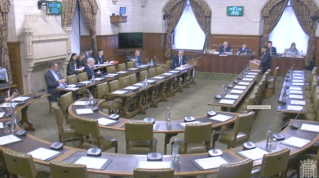The strategy is making the right noises, but key details – including any new funding for prison education – are worryingly absent, writes Jon Collins
The focus on getting people leaving prison into jobs in the government’s new prisons strategy white paper is welcome.
But education is the key building block that enables prison-leavers to secure employment. This must be a priority if the goals of the white paper are to be achieved.
It is clear that reform of prison education is needed. On the same day that the white paper was published, Ofsted published its annual report, which identified prisons as being the worst of all the areas that they inspect.
About 60 per cent of prisons are rated as ‘requires improvement’ or ‘inadequate’. The equivalent figure in other parts of the FE sector is just 20 per cent.
Good education is key to helping prison-leavers find work, so it is unsurprising that only 14 per cent of prison-leavers are in employment after six months.
More than 40 per cent of adults leaving prison reoffend within a year.
But while there is much that is welcome in this white paper towards changing that, it is short on detail.
For instance, it only commits to introducing in-cell technology in 11 more prisons by summer 2022. Plans for roll-out need to go further and faster. In-cell technology must also complement – not replace – face-to-face teaching.
Employers often want transferable skills, and team building, problem solving and communications skills are best developed during group work in the classroom. And prison learners cannot access these classrooms if there are not enough officers to bring them from their cells.
So a commitment in the white paper to increase the number of prison officers is welcome, but may be difficult to deliver unless low retention rates can be addressed.
More training for staff to build a prison culture that values learning is also a positive step, as is the proposal for more specialist support on education for prison governors.
There is, however, still a way to go. There is nothing, for instance, on how to better support prison teachers.
There is nothing on how to better support prison teachers
The white paper also promises a new “prisoner education service”, a manifesto commitment from 2019, but two years on, it is still unclear how that will differ from what is already in place.
Prison education departments already provide the basic literacy, numeracy and vocational skills promised in the white paper, while assessments already take place when people arrive in prison.
Meanwhile, the promise of better integration between classroom-based learning and the broader prison regime on literacy and numeracy (for example, by embedding work on functional skills into workshops) is also welcome. But again, little is said about how it will be achieved.
At the same time, the focus on basic and vocational skills is too narrow. Prison learners, particularly those serving long sentences, need to have the chance to progress and to pursue a range of educational opportunities.
Learning has a broader value than solely as a route into work, and higher levels of education can also lead to better jobs.
It is also unclear what further funding for prison education specifically, if any, will be forthcoming.
At the same time, there are other elements of the white paper that are positive. The overarching focus on resettlement and on getting prison-leavers into work is the right approach.
There is explicit recognition that prison education is currently “not good enough” and a commitment to “drive year-on-year improvements to Ofsted grades”.
This includes the intention that in a decade, the majority of prisons will have provision of comparable quality to further education in the community.
It also good to see the white paper reiterate the existing commitment to expand the use of secure laptops and develop new digital content.
If the government wants to succeed in significantly boosting the employment opportunities of prison-leavers, they must first get prison education right.
But without significant additional investment and much clearer detail, this will be impossible to achieve.









Personally I wonder if this lack of detail, and the concentration of functional skills and strictly defined employment skills, is a mistake or an indication of lazy drafting. I believe it fits with a wider government narrative which puts an emphasis on a narrow vocational focus on lower level qualifications. This seems to mirror the strategy FE now. The lack of mention of HE is an obvious example of this. Again, the current PEF contract lends itself to enabling the setting up of ‘pop up’ workshops to allow for training for job readiness e.g. Timsons. It is interesting that there are examples like this referred to in the document. I think the days of broad curriculums, including access to HE and distance learning, are numbered. In addition, the emphasis on IT also detracts from the need for a large education provider and even an education department with classrooms. For a government struggling to pay off massive debts, this no doubt makes a lot of practical sense.